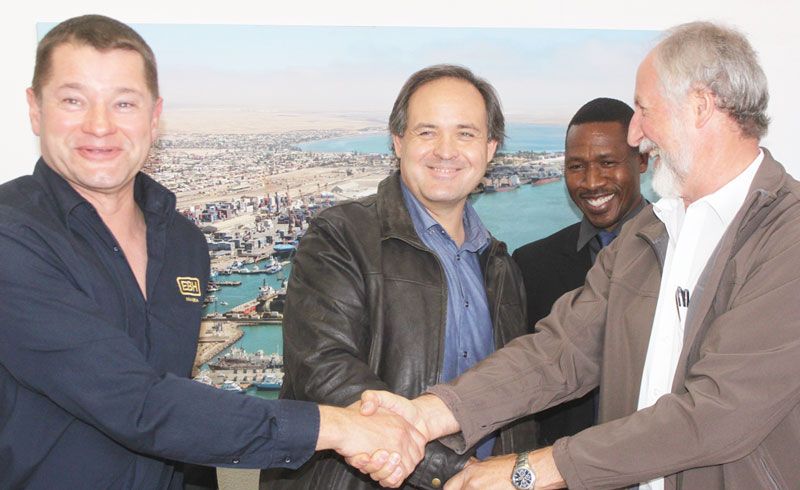
Own houses for EBH staff

Drydock operator, EBH Namibia this week announced it is on the cusp of finalising its intended housing scheme to help their employees become the proud owners of their own homes.
The process started in May 2013 when EBH bought 10 hectares of undeveloped land in Walvis Bay’s Tutaleni suburb.
Then followed a tender process to determine the correct technical partner to drive the project. The main consideration is that the housing must be affordable.
A further significant milestone step was achieved on Monday 7 November 2016, when EBH and the recently appointed Windhoek-based developers of the project, Oshipe Turnkey Projects met to sign the final development agreement at EBH’s offices in Walvis Bay.
In terms of the agreement, Oshipe will construct 214 houses and will recover their costs from the sale of these houses to EBH employees exclusively. The construction project will be completed within an estimated 25 months from the start date.
Hannes Uys, Chief Executive Officer of EBH said the company has always taken its corporate social investment responsibilities very seriously and has initiated a number of projects in response to the needs of its staff, and the Walvis Bay community as a whole.
“We have known for some time that the provision of affordable local housing was a priority for both EBH and its employees; and therefore, we are delighted to be able to take this project another major step closer to realisation,” he added.
With its harbour being host not only to the ship repair industry but also the busy fishing sector, Walvis Bay is one of Namibia’s major economic hubs.
The founding of the Tutaleni township was a step by the Walvis Bay municipality to alleviate the local housing shortage which results from the fast growth.
“By providing access to affordable housing, EBH is demonstrating a strong commitment to the empowerment and well-being of our employees and their families” said Uys adding that from the outset of this project, they have gone to great lengths not only to ‘lock in’ optimal affordability, through its purchase and donation of the land; but to ensure this project went out on a public interest tender where rigorous affordability, quality and delivery criteria would be adhered to by the developer that was ultimately selected.
“Part of the tender negotiations that we engaged in, prior to the finalisation of the selection process concerned these pivotal issues. In fact, we believe we have set the benchmark in Namibia for a robust and rigorous housing tender process, and hope that other organisations will follow this model and ethos for future housing tenders,” Uys stated.
EBH employees who have not previously had access to affordable housing will have first option in the allocation of these residential units. The employee pays only for the house, the land is donated by EBH.











































